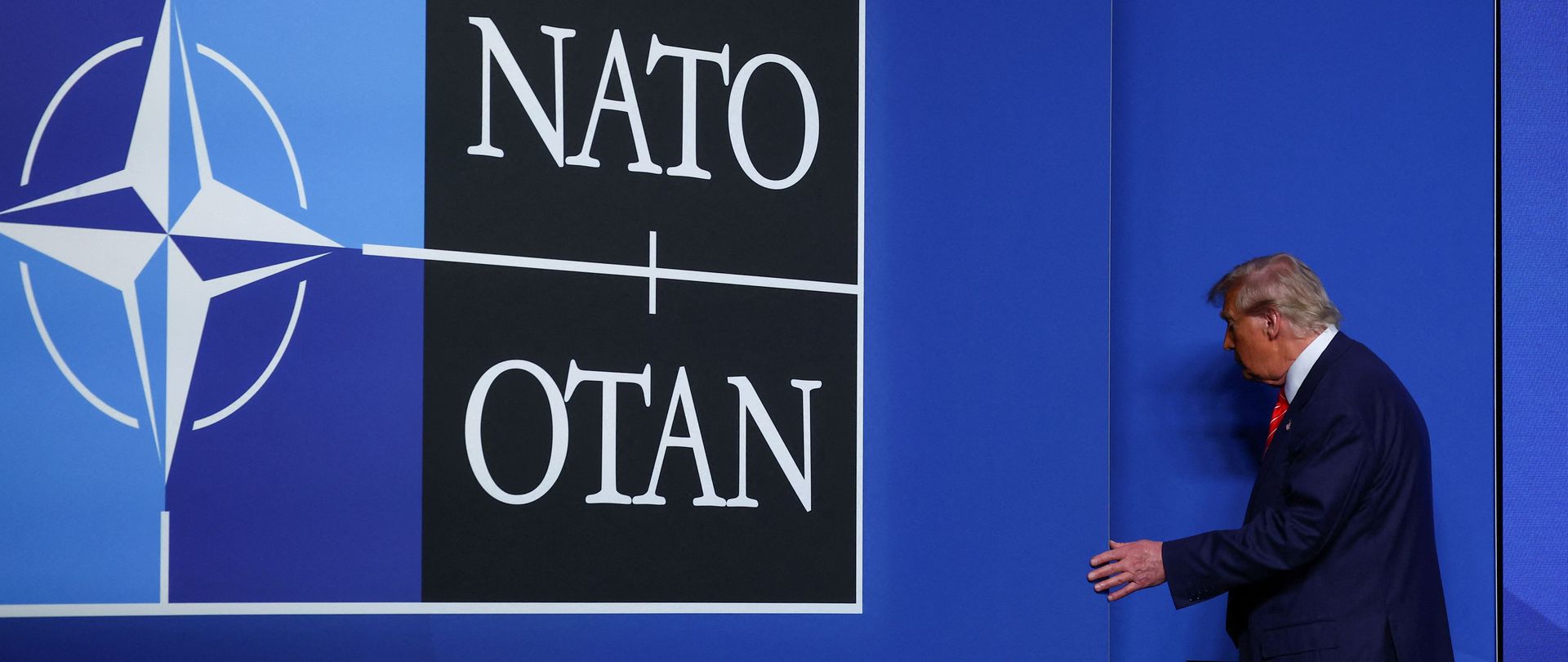
US President Donald Trump leaves the stage at the NATO summit in The Hague.
© picture alliance / REUTERS | Yves Herman
Foreign and Security Policy
Trump’s foreign and security policy has become increasingly unpredictable. Trump is raising doubts about alliances and partners in Asia and Europe, and he is more or less openly casting doubt on US military support and security guarantees. Uncertainty is growing, particularly among partners such as Ukraine and Taiwan, which are heavily dependent on American military support. At the same time, Trump has repeatedly raised expectations about his abilities to resolve conflicts with antagonistic regimes such as Russia and China, but also Iran and North Korea. He continues to make provocative statements about US territorial ambitions in Canada, Greenland, Panama, and Gaza.
The foreign policy elites of both parties continue to see the rise of China as a key strategic challenge – a perception reflected in Trump’s trade war with the country. However, it is unclear whether, and under what conditions, Trump would be prepared to de-escalate relations with China. In the Middle East, the Trump administration is unconditionally on Israel’s side. The military strikes against the Houthis and Trump’s decision to bomb Iran’s nuclear facilities show that this administration has not completely renounced the use of military means in the region either. Trump relies on close economic relations with the Gulf states without preconditions. Relations with Iran remain the linchpin of US Middle East policy, as underlined by the intervention in the war on the side of Israel.
Publications
-
Iran vor dem Regimewechsel?
Nach den Luftangriffen Israels und der Vereinigen Staaten hat US-Präsident Trump die Bevölkerung aufgerufen, sich ihr Land zurückzuholen. Welche Folgen hat der Angriff? Gibt es erste Anzeichen eines Regimewechsels?
Interview mit Christoph Schäfer, in: Deutschlandfunk, zur Diskussion, 04.03.2026. -
«Bislang traut sich da keiner, offene Friktion zu zeigen»
Die USA haben gemeinsam mit Israel den Iran angegriffen. Als Gründe nennt US-Präsident Donald Trump unter anderem das iranische Atomprogramm, das iranische Raketenprogramm und die Grausamkeit des Regimes.
Interview mit Katrin Hiss, in: SRF, Heute Morgen, 03.03.2026. -
Politologe Overhaus zum Iran: "Kalkuliertes Risiko für Trump"
Sollte es nicht zu einem Regimewechsel im Iran kommen, könnten die USA dennoch Erfolge des Einsatzes verbuchen.
Interview mit Stefan Schlag, in: NDR Info, 02.03.2026. -
US Defence Policy: Between Isolationism and the Pursuit of Dominance
Contradictions in Washington Demand a Clear Response from Europe
SWP Comment 2026/C 10, 26.02.2026, 7 Pagesdoi:10.18449/2026C10
-
US-Verteidigungspolitik zwischen Isolationismus und Dominanzstreben
Widersprüche in Washington erfordern eine klare Antwort Europas
SWP-Aktuell 2026/A 06, 11.02.2026, 8 Pagesdoi:10.18449/2026A06
-
US-Außenpolitik: "Regeln werden neu verhandelt"
Trump halte nichts von multilateralen Beziehungen und wolle lieber direkten Einfluss nehmen, sagt Politologe Marco Overhaus. Für die EU und den europäischen Teil der NATO sei nun die Herausforderung, die sich neu etablierenden Regeln mit zu beeinflussen.
Interview mit Uwe Schulz, in: WDR 5, Morgenecho, 06.02.2026.
